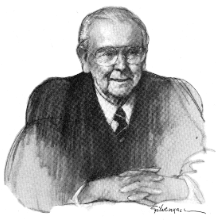Bill would allow undercover testers to record conversations with landlords to prove acts of housing discrimination

We've talked about the limitations of landlords to surveil tenants, but what about the limitations on surveilling landlords?
![]()
Privacy has been an interesting topic nowadays with Ring and other technology available to capture all activity, record every sound, and catch people in embarrassing moments.
Landlords, naturally, would like to have eyes and ears on their property but in an earlier piece, we said that this inquisitiveness must be tempered with an understanding that tenants are entitled to some solitude and don't want to be watched.
Read our previous article: Smile. You're on Candid Camera. Wait, no Ring
Peeping on tenants is allowed in limited circumstances and even then, we may not recommend it because it creates an uneasy feeling among residents.
Where we have seen value in surveillance, particularly, is identifying thieves who steal packages. When there is a resident stealing other people's stuff, we treat this as a non-curable offense.
But what about tenants surveilling landlords?
The newly introduced bill of Assembly Bill 1086 would authorize eavesdropping on a landlord who makes statements in violation of fair housing laws.
Such types of surreptitious recordings are criminalized under current law. California is a "two-party consent" state, meaning that generally speaking, a conversation cannot be legally recorded without the other party's permission.
There is a troubling practice of opportunistic attorneys catching landlords in the act of discrimination by hiring "testers," and business is good. One attorney called upon the same person - someone with a Section 8 housing voucher in hand - to instigate over 30 extortion plots when landlords shooed her away. Our office was retained to defend against these lawsuits.
One group in support of AB 1086 is the Fair Housing Advocates of Northern California, an organization that is dedicated to providing "free comprehensive fair housing counseling, complaint investigation, and assistance in filing housing discrimination complaints" with various government agencies.
It would seem to be a noble cause - that is, ensuring the health and well-being of people through equal opportunity housing opportunities and giving them an upward trajectory in life. Their introductory video is a tear-jerker.
Nonprofit Spotlight featuring Fair Housing Advocates of Northern California from Catchafire.org on Vimeo.
In fact, groups like this sue landlords for discriminatory comments and support AB 1086, a proposed law that would allow hired people posing as prospective renters to record conversations without the consent of the housing provider, a departure from California's "two-party consent" rule, meaning you have to agree to be recorded.
Let's look at the statute
The bill sponsored by Assemblyman Kevin McCarty, D-Sacramento, would remove prohibitions of intercepting communications by an agent of the Civil Rights Department or an investigator or tester for a fair housing enforcement organization.
It reasons that "the use of testing is an essential critical methodology in investigating compliance with and enforcing violations of fair housing laws and an essential tool to prove housing discrimination has occurred." A tester is defined as:
a person who, without any bona fide intent to rent or purchase housing, purchase[s] a mortgage or vehicle loan, or patronize[s] a place of public accommodation, poses as a prospective renter, borrower, or patron for the purpose of gathering information for the purpose of assessing compliance with civil rights laws.
For those of you who argue that the use of imposters is fraud or entrapment, we won't disagree with you, but point out that this issue was visited by the U.S. Supreme Court in the 1982 case of Havens Realty Corporation v. Coleman. The case involved allegations that a real estate brokerage firm engaged in a pattern of racial discrimination by steering African American clients away from certain neighborhoods and toward others.
A civil rights organization based in Richmond, Virginia sent both a Black tester and a White tester to answer an advertisement for a rental. The Black woman was informed that there were no vacancies while the White man was told that several rental units were available.
Ordinarily, lying on an application is an unpardonable sin, but the Supreme Court justified fibs as a means to expose housing discrimination.

''A tester who has been the object of a misrepresentation made unlawful has suffered injury in precisely the form the statute was intended to guard against and therefore has standing to maintain a claim for damages under the Act's provisions. That the tester may have approached the real estate agent fully expecting that he would receive false information, and without any intention of buying or renting a home, does not negate the simple fact of injury.''
~ Supreme Court Justice William Brennan
In the text of AB 1086, there is an odd reference to the murder of George Floyd and other victims of police brutality, noting that video recordings were instrumental in obtaining jury verdicts against law enforcement officers. This seems to be a disconnected thought - or dicta - and we fail to see the comparison between police brutality and recordings of fair housing tests.
Parting thoughts
We welcome all rental applicants and do not express a preference for any group nor exclude anyone from housing opportunities. When a rental application is denied, it is because we found a more suitable candidate. Period.
